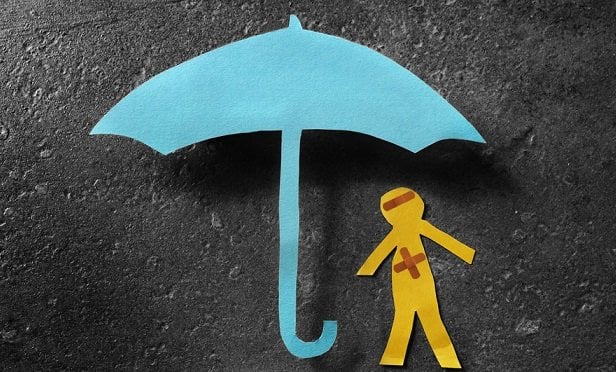 A number of factors will impact the final tally of uninsured Americans, including the Trump Administration's decision against re-opening enrollment to Affordable Care Act marketplaces.
A number of factors will impact the final tally of uninsured Americans, including the Trump Administration's decision against re-opening enrollment to Affordable Care Act marketplaces.
An analysis from the Kaiser Family Foundation (KFF) estimates that uninsured Americans could account for between 670,000 and 2 million hospitalizations due to the ongoing COVID-19 pandemic. The new study noted that there is still a great deal of uncertainty around the epidemic and its possible costs.
Related: 10 states predicted to see the highest increase in number of uninsured
KFF's study said that although recent funding bills passed by Congress does not allocate money specifically for covering COVID-19 treatment costs for the uninsured, President Trump has indicated that a new $100 billion fund for hospitals and health care providers could be used to reimburse hospitals for treating uninsured Americans.
Baseline predictions
The analysis uses models and estimates from sources such as the Harvard T.H. Chan School of Public Health and the Centers for Disease Control and Prevention to provide some rough predictions. These include:
- 20 percent to 60 percent of Americans will ultimately become infected by COVID-19.
- 15 percent of those infected will require hospitalization.
- This number is reduced to 12 percent for the KFF analysis, because most uninsured people are under age 65, and therefore at lower risk for hospitalization.
- 15 percent of hospitalizations will require the most intensive care, including use of a ventilator.
- Based on models from the Proceedings of the National Academy of Sciences, from 2 percent to 7 percent of uninsured people in the U.S. will require hospitalization for COVID-19.
The analysis compares these possible COVID-19 hospitalizations to similar respiratory infections and the average 2017 Medicare payment for such episodes, which ranged from $13,000 to $40,000, depending on the severity of the case. The study noted the high rate of uncertainty around payments under the proposed policy.
The total cost for treating uninsured Americans under this evolving policy could range from $13.9 billion to 41.8 billion, the study concludes. "At the top end of the range, payments on behalf of the uninsured would consume more than 40 percent of the $100 billion fund Congress created to help hospitals and others respond to the COVID-19 epidemic," the study said. "Given the uncertainty of our estimates of the total funding that will be needed to reimburse hospitals, and the fact that infections may come in several waves over the next year, it is unclear whether the new fund will be able to cover the costs of the uninsured in addition to other needs, such as the purchase of medical supplies and the construction of temporary facilities."
Uncertainties around state funding and implementation
The study noted there are still many issues yet to be resolved about treating uninsured patients infected with COVID-19. The Trump Administration's decision against re-opening enrollment to Affordable Care Act marketplaces is one complicating factor. Eleven states that have their own marketplaces under ACA have re-opened enrollment to the uninsured during this pandemic, but the majority of states will not, it appears. The study noted that the current policy could lead to more of the $100 billion fund going to states with higher uninsured rates, leaving less funding for hospitals in states that have more generous Medicaid enrollment policies.
A number of other variables could result in total costs being higher than predicted in this study. For example, the KFF analysis only includes costs for inpatient hospital care. "Our analysis does not take into account the likelihood that patients could also face substantial medical bills for outpatient care outside of hospitals, or the fact that this policy could encourage the uninsured to seek care in hospitals instead of lower-cost settings where the federal government will not be reimbursing for their care," the report said. "The uninsured will also not be covered for needed follow-up care if that care is not provided in a hospital."
Although the most direct burden for uninsurance is always borne by the uninsured, the long-term results of these costs could affect all Americans, as costs for uncompensated care are passed on through the system; from providers, to insurers, to policyholders.
Read more:
